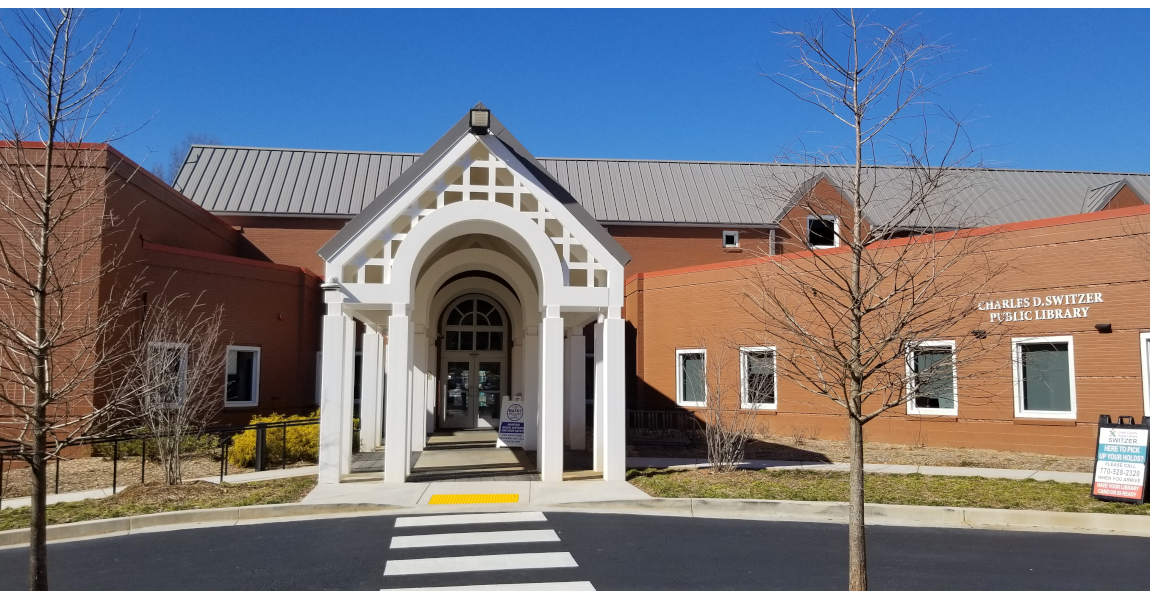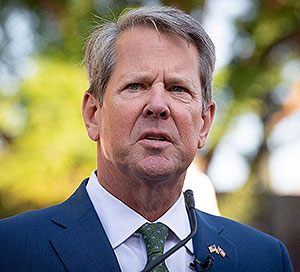
Marietta, GA—The Cobb GOP County Committee met at the Central Cobb County Library “Switzer” branch Wednesday evening to set the dates for the up-coming 2024 Precinct Caucus Meeting and the County Convention, to appoint committees to run these events, and to amend county party rules. Although the meeting was largely non-controversial, the meeting did get a bit testy when new rule amendments were presented governing how the Cobb GOP’s resolutions could be presented and passed.

Ever since September 2021 when the Cobb GOP County Committee overwhelmingly passed a resolution publicly “censuring” or reprimanding Governor Brian Kemp for failing to deal with illegal immigration as he promised (and, as some contend, for failing to fully investigate the allegations of election fraud before certifying the 2020 presidential election in Georgia) the Cobb GOP has reined in the power of the county GOP’s Resolutions Committee. The Cobb GOP was targeted for issuing that resolution even though other GOP organizations such as the 14th Congressional District GA GOP, the 3rd District GA GOP, the Whitfield County GOP and other official GOP organizations around the state have also issued public resolutions reprimanding Republican-elected officials at the state capitol for failing to promote Republican principles or policies, and for generally failing to advance the Republican agenda.

The public backlash against that Cobb resolution involved so much pressure immediately after it happened in 2021, that the county committee over-corrected a procedural mishap by approving rules proposed by Establishment influences within the Cobb GOP (which some say were led by then Rules Committee Chairwoman Donna Rowe, who now serves as the Parliamentarian). These rules stifled the Resolutions Committee’s ability to present proposed resolutions directly to the county committee without first going through the Cobb GOP Executive Committee.
Under those current rules, the Resolutions Committee is prohibited from presenting more than two resolutions at a time. The Cobb GOP Executive Committee also has to first vet any resolutions the Resolutions Committee wants to propose to the full county committee before they are allowed to do so.
One of the proposed rule amendments on Wednesday which passed enabled the county GOP Executive Committee to possibly allow for more than two resolutions, at its discretion. The more contentious proposal would have required the Executive Committee to give the Resolutions Committee 45-day notice of a forthcoming county committee meeting so that the Resolutions Committee could prepare timely resolutions in preparation for that meeting.

Cobb GOP Resolutions Committee Chairman Leroy Emkin from East Cobb used the discussion to argue against the two-resolution restriction on the Resolutions Committee. John McLean from West Cobb, who is also a member of the Resolutions Committee, said that the committee needed more time to produce timely resolutions before meetings, given the new restrictions that the Resolutions Committee has in order to have resolutions vetted by the Executive Committee 15 days in advance of the county committee meeting.
Former Cobb GOP Executive Committee officer Catherine Floam argued that the 45-day requirement would be too cumbersome for the Executive Committee, particularly when sometimes the Cobb GOP cannot schedule meetings related to things such as conventions until the state GA GOP completes preliminary business, and this may not allow for 45 days advance notice. Failure to follow the proposed 45-day requirement might invalidate the call of a committee meeting, Cobb RA President Chris Deeb expressed.

Cobb GOP Secretary Lily Deeb agreed that the proposed 45-day requirement would be too cumbersome for their team of volunteers, and argued that the 15-day requirement for the resolutions to be submitted for vetting to the Executive Committee was what was creating the problem.
All of the main participants in this debate, including Emkin, McLean, Floam, and Deeb are Cobb RA members serving on the Cobb GOP County Committee. In the course of the discussion, a motion was made to call the question and end debate, but that motion failed, and the debate continued until the 45-day proposal was eventually tabled.
“The problem stems from the Cobb GOP putting these additional restrictions on the Resolutions Committee since 2021,” said Nathaniel Darnell, the Cobb RA Chairman. “They should not require the Resolutions Committee to have all resolutions vetted by the Executive Committee prior to a county committee meeting, nor should they have a two-resolution restriction on the Resolutions Committee. We’ve never done it that way before during the last ten years I’ve been involved. The proposed resolutions should simply be shared with the Chairwoman and Secretary in advance to be included as attachments in the Call for a full Cobb GOP County Committee meeting, just like they do for proposed rule-changes from the Rules Committee.”

“The way they’re doing it now,” said John McLean, “I don’t understand what the point is of even having a Resolutions Committee! It really doesn’t motivate me to want to continue to serve on the committee.” McLean expressed interest in the Cobb GOP Rules Committee potentially adopting Darnell’s suggested solution. He just did not want Cobb GOP Chairwoman Salleigh Grubbs to be blind-sighted by a proposed resolution prior to a county committee meeting.
McLean added that he believed the Resolutions Committee needs to be able to issue timely resolutions as our elected officials face pending bills and deadlines in order to provide feedback and accountability.
Comments: 2
The whole resolution effort is a joke in Georgia. Robert’s Rule of Order is a joke with politics in Georgia. The people really don’t have a voice anymore. We’re basically told to sit down, shut up and mind your own business.
Putting these or any other restrictions on presenting the peoples resolutions clearly curbs both the people’s fundamental right to freedom of SPEECH, as well as curbs the people’s right to REDRESS OUR GOVERNMENT(S). Both fundamental freedoms are protected in the US Constitution Bill of Rights, which is THE supreme law of the land, and thereby NOT to be infringed upon.